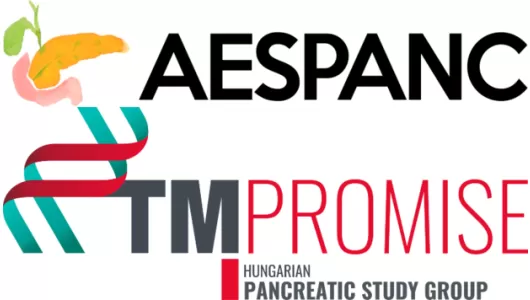
PROMISE
Currently, the most important outcome variables in Acute Pancreatitis (AP) are persistent organ failure (POF) and mortality, according to the physician point of view. These variables occur infrequently (<10 and <5% respectively) (Sternby et all, see "References"), therefore, studies designed to assess the effectiveness of new treatments for AP to decrease POF or mortality require a very large sample of patients, which is unfeasible. Currently, clinical trials addressing the management of AP do not take into account Patient Reported Outcome Measures.
PROMS (Patient Reported Outcome Measures) have been defined as any report of the status of a patient's health condition that comes directly from the patient, without interpretation of the patient's response by a clinician or anyone else (first link in "References"). PROMS are gaining importance as a tool to design outcome variables. This kind of measurement has been recently included in the quality assesment approaches (Crossing the Quality Chasm: A New Health System for the 21st Century, see "References"), being PROMS a useful tool to improve the triple aim framework of better quality, appropriate utilization, and enhanced patient experience (second link in "References"). The aim of PAN-PROMISE is to incorporate an outcome variable in AP based in the patient´s experience. For this purpose the investigators involved in this project have developed a new instrument based on symptoms found to be important for the patient. This new instrument is intended to be a simple quantitative variable, relevant for the patient, that can be useful to test new treatments for AP without the need for a very large sample size, fulfilling the requirements of the triple aim framework by incorporating an outcome measurement defined by the patient.
The Hungarian Pancreatic Study Group (HPSG) also joined the patient involvement. A total of 524 patients from 15 countries participated in the study.
The trial is closed, see the publication of the results in the related content.